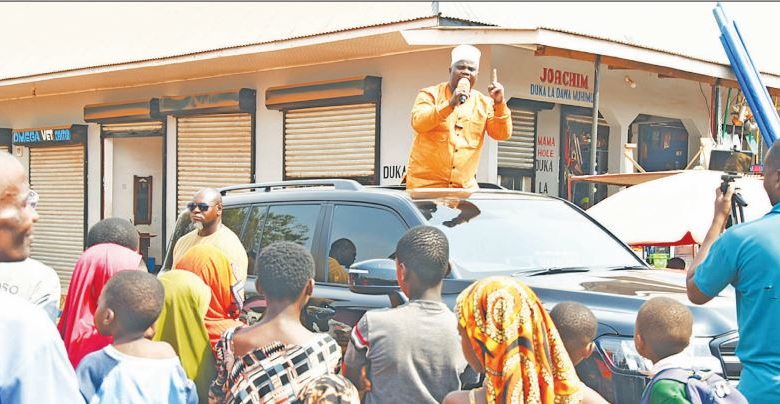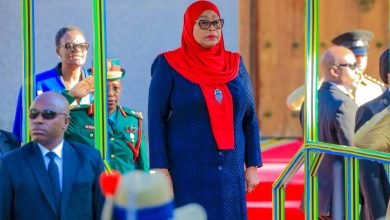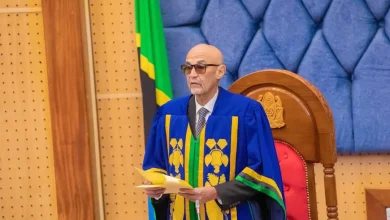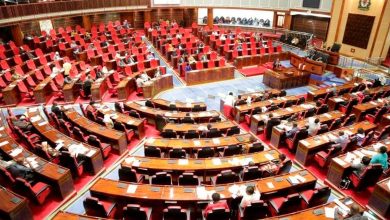NLD: This is how we’ll implement our manifesto

DAR ES SALAAM: AS the race towards the 2025 General Election intensifies, the National League for Democracy (NLD) has outlined an ambitious yet practical plan detailing how it will translate its manifesto into results.
The party, which positions itself as a reformist force for inclusive growth and social justice, has anchored its policy agenda on three pillars— health, education and employment—believing that these are the foundations for long-term prosperity and equality in Tanzania.
NLD’s first and boldest promise is to make healthcare completely free for every Tanzanian.
The party argues that access to health services should be treated as a fundamental human right rather than a business opportunity.
At the Political Parties Manifesto Debate held at the University of Dar es Salaam, recently, the party’s Deputy General Secretary, Mr Doyo Fahad Hassan, emphasised that health is not just a social service but the bedrock of economic productivity and national unity.
“Our number one priority is health. As NLD, we have placed the wellbeing of every Tanzanian at the centre of our policy agenda. It is unfortunate that, even after 64 years of independence and union, healthcare is still being treated as a commercial enterprise,” said Mr Hassan.
To achieve its goal, NLD plans to overhaul the health financing system by redirecting resources wasted through inefficiencies and corruption into primary healthcare and preventive services.
The party envisions strengthening community health centres, expanding rural hospitals and introducing a universal health card that guarantees access to essential care nationwide.
Moreover, NLD proposes to establish a National Pharmaceutical Corporation to locally produce essential medicines and medical equipment, reducing dependency on imports and controlling costs.
The initiative would not only guarantee a steady supply of drugs but also create employment opportunities for Tanzanian professionals in the health and pharmaceutical sectors.
Education reform features prominently in NLD’s blueprint, with a strong emphasis on aligning learning outcomes with the demands of the job market.
The party plans a comprehensive restructuring of the education system, from early childhood to higher education to ensure that students graduate with practical, marketready skills.
According to Mr Hassan, the current system fails to respond to technological changes and evolving global labour market needs.
“The world we live in no longer values a degree in name only. What matters today is whether a graduate can innovate, create and solve problems,” he said.
The NLD intends to introduce a competency-based curriculum that nurtures creativity, critical thinking and digital literacy.
Vocational and technical training will be expanded, with partnerships forged between universities, industries and research institutions to ensure that graduates are equipped for real-world challenges.
To complement these reforms, the party plans to invest heavily in research and technology through the establishment of Innovation and Artificial Intelligence (AI) Research Centres at universities.
These centres will produce accurate, data-driven insights to guide national planning and decision-making, reducing reliance on foreign consultancies and manipulated statistics.
Addressing unemployment, particularly among the youth, stands as another critical pillar of NLD’s manifesto.
The party plans to stimulate job creation through a mix of infrastructure development, industrial expansion and digital innovation.
One of its flagship projects is the construction of six-lane expressways from Kibaha to Dodoma, designed to decongest Dar es Salaam and stimulate trade across central regions.
The party also envisions a modern dry port in Chalinze, which would serve as a major logistics and commercial hub, attracting private investment and creating thousands of jobs.
In addition, the improvement of transport corridors such as Dodoma–Tunduma Road will facilitate movement of goods and people, reinforcing Tanzania’s position as a regional trade gateway.
The NLD projects that these initiatives, combined with local industry incentives, will generate employment for both skilled and unskilled workers within the first 100 days of forming government.
ALSO READ: NLD pledges to build a market and a modern hospital in Kagera
To encourage entrepreneurship, the party intends to establish a National Youth Empowerment Fund offering soft loans, mentorship and start-up grants to young innovators. Special attention will be given to women and people with disabilities to ensure equitable access to opportunities.
NLD’s manifesto also places great emphasis on democracy, human rights and gender equality. The party pledges to strengthen the rule of law and create a transparent, accountable public administration system.
Mr Hassan reiterated that the NLD rejects authoritarianism and will instead nurture participatory governance where citizens have a voice in national decision-making.
The party envisions an independent judiciary, stronger anti-corruption institutions and inclusive political representation.
On gender parity, the NLD stands out with one of the most progressive commitments in the political arena, achieving 50-50 gender balance in leadership positions.
“Over 56 per cent of our parliamentary and council candidates are women,” noted Mr Hassan, adding that the party aims to make gender equality not just a slogan but a reality in governance and development planning.
At the heart of NLD’s economic strategy is the goal of creating a modern, inclusive and competitive economy driven by value addition, innovation and transparency.
The party plans to reform investment laws to reduce red tape, encourage local investors and promote exports through Special Economic Zones (SEZs).
NLD also pledges to establish a single investment window to ease the process of doing business and ensure that both local and foreign investors operate under fair, predictable rules.
Public finance management will be strengthened through transparent procurement systems and performance-based budgeting.
This, the party says, will curb misuse of public funds and ensure that every shilling contributes to national development.
In agriculture, the NLD proposes to increase the sector’s share of the national budget to 14 per cent, aligning with the Malabo Declaration and Sustainable Development Goals (SDGs).
The party believes that agriculture remains central to poverty reduction and inclusive growth.
Its plan includes investing in irrigation systems, expanding rural storage facilities, promoting mechanisation, and supporting farmers through subsidised inputs and guaranteed markets.
The party will also encourage the use of digital platforms to connect farmers directly with consumers, reducing exploitation by middlemen.
In fisheries and livestock, NLD intends to promote modern practices, expand cold storage infrastructure and introduce community-managed fish breeding programmes to sustain productivity.
Food security will be guaranteed through national grain reserves and climateresilient farming systems capable of withstanding shocks from droughts and floods.
The NLD’s industrial and trade policy seeks to harness Tanzania’s natural resources for value addition.
It aims to develop small and medium industries (SMEs), encourage domestic manufacturing and formalise small-scale mining to increase community participation in the extractive sector.
Access to affordable loans and business training for local entrepreneurs will be prioritised, while the mining industry will be guided by transparency, local ownership and environmental responsibility





